THANK YOU 🙏
THANK YOU 🙏
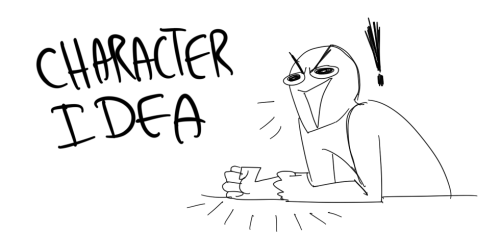
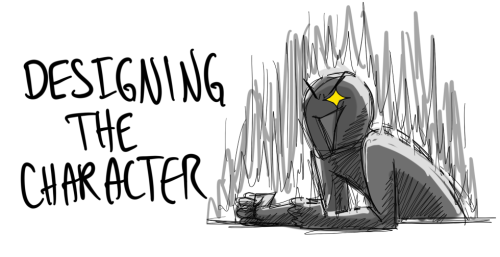
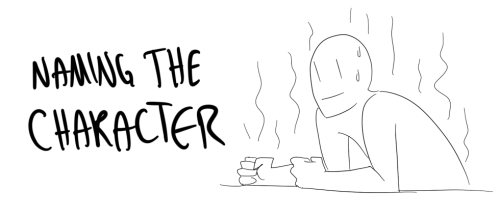
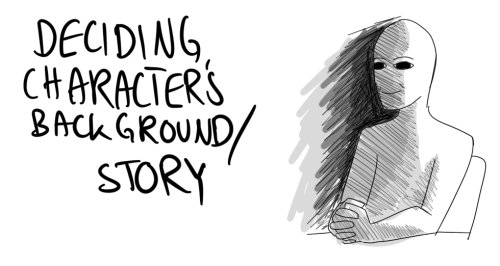
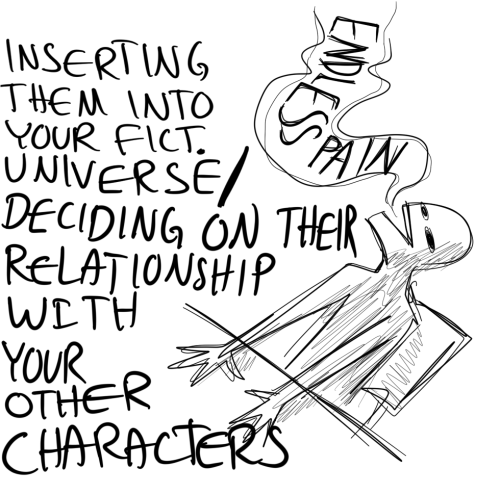
the suffering never ends
More Posts from Sadtrainnoises and Others
A Star in the Universe
There is a star in the universe
I hear its words
Trailing in the night
Calling to me
"Come home"
I hear it say
"Come home to us"
It repeats
In the night is when I hear it most
Its words stronger then
Its words brighter
Calling
I hear it as I fall asleep
"Welcome home"
It says
"Home"
I repeat
-SadTrainNoises
Oh that two year gap on my resume was when I was the architect of my own hell
a texan’s unofficial guide to writing a southern accent
Obligatory disclaimer that southern accents vary significantly, and I can speak on a general Texas accent. Also, this is nit-picky, so don’t take it too seriously. Mostly just “hey here’s some fun ways to make your writing more realistic.”
1) Most people writing a southern accent love to use “ain’t” and “y’all”. Great start, but when those terms are surrounded by non-contracted words, it starts to lose the accent (and look a little funky). Think “how’re y’all doing” rather than “how are y’all doing.”
1.5) “Ain’t” is often paired with “nothin’”. “There ain’t nothin’ wrong with that” vs. “There isn’t anything wrong with that.”
2) Southern accents don’t only drop the last letter on -ing. “Something” becoming “somethin’” is definitely accurate, but I also hear a lot of “around” becoming “‘round” and similar things.
2.5) On a slightly related note, if you’re doing a southern accent, keep in mind that the way someone writes out words “in a southern accent” does not always reflect how it would be pronounced. “Somethin’” is nice short-hand for “oh this is dropping off that sound at the end,” but I usually hear it pronounced like “suh-mn” (which is unreadable and bad for writing). I don’t even have a strong accent, and I do this.
3) There’s a lot of jargon! I’m not sure if this is specific to my region or more general, but a common one I hear a lot is “fixin’ to” as a substitute for “going to.” Like “I’m fixin’ to start dinner” rather than “I’m going to start dinner.” In addition, theres a whole world of fun southern terms and phrases (big fan of “oh, bless his heart” as a patronizing, fake nicety). Lots of fun church-themed and farm-themed terms and turns of phrase.
4) “Y’all” is a super common gender-neutral term, but “folks” is used equally in my experience. I’ve heard it used to refer to family (“his folks” to mean “his parents”), to refer to specific communities (“those folks—“), or just as a general substitute for “people” (“folks these days—“).
5) “Howdy!” is severely underused in writing! It’s super common around where I live, and it’s just used as a greeting.
Go forth and have fun!
I'm re-listening to Icebound, and I realized something.
Taishen said he raised Mei Li. And somehow I didn't register that the first time I listened to Icebound. Taishen being a parent or at least a parental figure makes so much sense. And also...
That means he's a dilf
...I need to write a modern au one-shot where he's a single parent tea shop owner and has a meet cute with Jornir
Body Language
When someone is...
Sad

Face/Body:
Avoidant/reduced eye contact
Drooping eyelids
Downcast eyes
Frowning
Raised inner ends of eyebrows
Dropped or furrowed eyebrows
Quivering lip/biting lip
Wrinkled nose
Voice:
Soft pitch
Low lone
Pauses/hesitant speech
Quiet/breathy
Slow speech
Voice cracks/breaking voice
Gestures/Posture:
Slouching/lowered head
Rigid/tense posture
Half formed/slow movement
Fidgeting or clasped hands
Sniffing or heavy swallows
Self soothing gestures (running hands over the arms, hand over heart, holding face in palms, etc)
The only reason green arrow realised who Batman is first is cause Batman slipped once and said “talk to me superman” after a mission during a briefing once when everyone was super tired in the exact same tone and jersy accent Brucie would say“keep twalking ollie we need to pass this test” to him when they were in the library in school at 3am.
He just sits there staring into space. Next day he tries to tell himself it was just the exhaustion but inside he knows.
Bruce noticed and inside slapped himself but keeps his composure.
holy shit, look at all the stars!!
Me about 2 hours ago

The Kiss of Life - A utility worker giving mouth-to-mouth to co-worker after he contacted a low voltage wire, 1967
-
 i-looktothe-stars reblogged this · 2 weeks ago
i-looktothe-stars reblogged this · 2 weeks ago -
 i-looktothe-stars liked this · 2 weeks ago
i-looktothe-stars liked this · 2 weeks ago -
 hornybilingual liked this · 2 weeks ago
hornybilingual liked this · 2 weeks ago -
 heartfullofleeches liked this · 2 weeks ago
heartfullofleeches liked this · 2 weeks ago -
 space-plume reblogged this · 2 weeks ago
space-plume reblogged this · 2 weeks ago -
 space-plume liked this · 2 weeks ago
space-plume liked this · 2 weeks ago -
 milomileno reblogged this · 2 weeks ago
milomileno reblogged this · 2 weeks ago -
 helloninenine liked this · 2 weeks ago
helloninenine liked this · 2 weeks ago -
 vesspell liked this · 2 weeks ago
vesspell liked this · 2 weeks ago -
 aurorasilvervanrouge reblogged this · 2 weeks ago
aurorasilvervanrouge reblogged this · 2 weeks ago -
 anidleneuron reblogged this · 2 weeks ago
anidleneuron reblogged this · 2 weeks ago -
 anidleneuron liked this · 2 weeks ago
anidleneuron liked this · 2 weeks ago -
 peepg liked this · 2 weeks ago
peepg liked this · 2 weeks ago -
 hairjel liked this · 2 weeks ago
hairjel liked this · 2 weeks ago -
 videoplanchette reblogged this · 2 weeks ago
videoplanchette reblogged this · 2 weeks ago -
 selflessasphodel liked this · 2 weeks ago
selflessasphodel liked this · 2 weeks ago -
 goose-the-kitty reblogged this · 2 weeks ago
goose-the-kitty reblogged this · 2 weeks ago -
 goose-the-kitty liked this · 2 weeks ago
goose-the-kitty liked this · 2 weeks ago -
 chalkadow reblogged this · 2 weeks ago
chalkadow reblogged this · 2 weeks ago -
 magicians-fool liked this · 2 weeks ago
magicians-fool liked this · 2 weeks ago -
 fathom1phantom reblogged this · 2 weeks ago
fathom1phantom reblogged this · 2 weeks ago -
 seriesofmakingthisaccount reblogged this · 2 weeks ago
seriesofmakingthisaccount reblogged this · 2 weeks ago -
 zeetheprofessionalprocrastinator reblogged this · 2 weeks ago
zeetheprofessionalprocrastinator reblogged this · 2 weeks ago -
 yourlocalintrovetsimp liked this · 2 weeks ago
yourlocalintrovetsimp liked this · 2 weeks ago -
 ouribborriiss reblogged this · 2 weeks ago
ouribborriiss reblogged this · 2 weeks ago -
 olivia-willo-w reblogged this · 2 weeks ago
olivia-willo-w reblogged this · 2 weeks ago -
 olivia-willo-w liked this · 2 weeks ago
olivia-willo-w liked this · 2 weeks ago -
 queriesntheories liked this · 2 weeks ago
queriesntheories liked this · 2 weeks ago -
 julevaru reblogged this · 2 weeks ago
julevaru reblogged this · 2 weeks ago -
 julevaru liked this · 2 weeks ago
julevaru liked this · 2 weeks ago -
 mudalchemy liked this · 2 weeks ago
mudalchemy liked this · 2 weeks ago -
 kitkattheninjalover reblogged this · 2 weeks ago
kitkattheninjalover reblogged this · 2 weeks ago -
 kitkattheninjalover liked this · 2 weeks ago
kitkattheninjalover liked this · 2 weeks ago -
 doctorkuro reblogged this · 2 weeks ago
doctorkuro reblogged this · 2 weeks ago -
 doctorkuro liked this · 2 weeks ago
doctorkuro liked this · 2 weeks ago -
 readerrrrrr liked this · 2 weeks ago
readerrrrrr liked this · 2 weeks ago -
 readerrrrrr reblogged this · 2 weeks ago
readerrrrrr reblogged this · 2 weeks ago -
 slutforpesto reblogged this · 2 weeks ago
slutforpesto reblogged this · 2 weeks ago -
 slutforpesto liked this · 2 weeks ago
slutforpesto liked this · 2 weeks ago -
 lightbringer-morningstar liked this · 2 weeks ago
lightbringer-morningstar liked this · 2 weeks ago -
 normystical liked this · 2 weeks ago
normystical liked this · 2 weeks ago -
 ladyinrosso reblogged this · 2 weeks ago
ladyinrosso reblogged this · 2 weeks ago -
 supermira247 reblogged this · 2 weeks ago
supermira247 reblogged this · 2 weeks ago -
 supermira247 liked this · 2 weeks ago
supermira247 liked this · 2 weeks ago -
 jennicaelements liked this · 2 weeks ago
jennicaelements liked this · 2 weeks ago -
 kineyoart liked this · 2 weeks ago
kineyoart liked this · 2 weeks ago -
 hattuvaris liked this · 2 weeks ago
hattuvaris liked this · 2 weeks ago -
 shehulk152 reblogged this · 2 weeks ago
shehulk152 reblogged this · 2 weeks ago -
 dying-in-multi-fandom liked this · 2 weeks ago
dying-in-multi-fandom liked this · 2 weeks ago -
 yamwhey reblogged this · 2 weeks ago
yamwhey reblogged this · 2 weeks ago










